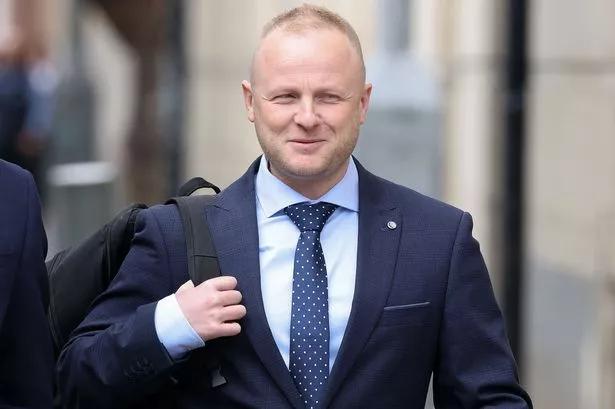Loyalist Activist Denies Allegations of Pre-Meeting Pact Ahead of NAMA Testimony

Loyalist activist Jamie Bryson today (Thursday) rejected suggestions that he forged an agreement with Sinn Fein’s Daithi McKay ahead of him giving evidence to a Stormont Committee probing the NAMA sale portfolio.
Bryson's Testimony
Mr Bryson was called to give evidence at a trial currently being held in Belfast Crown Court. From Rosepark in Donaghadee, he has been charged alongside Thomas Gerard O’Hara, 41, from Lisnahunshin Road in Cullybackey with conspiring together and with Daithi McKay to commit an offence of misconduct in a public office on dates between September 1 and 24, 2015. Mr McKay, who is 43 and from Loughan Road in Dunnamanagh, has been charged with misconduct in a public office on September 23, 2015. All three men have denied the charges against them, and Mr Bryson was the first defendant to give evidence.
Denial of Allegations
After being called to the witness box, Mr Bryson swore on the Bible to tell the truth. He was asked a series of questions by his barrister Joseph O’Keeffe KC about evidence he gave to the Stormont Committee on September 23, 2015 and whether or not be had conspired to manipulate how the evidence was presented. During the session, he named a number of people, including the DUP’s Peter Robinson, who he claimed would benefit financially from the NAMA deal. In the aftermath of Mr Bryson’s allegations, Mr Robinson issued a statement and branded the allegations made against him as “scurrilous and unfounded” and without “one iota of evidence”.
Communication Details
From the witness box at today’s hearing, Mr Bryson accepted there were messages exchanged on Twitter between himself and both Mr McKay and Mr O’Hara’s account prior to him giving evidence to the Committee. At the relevant time, Mr Bryson said it was his understanding that Mr O’Hara was a Sinn Fein policy worker. When asked, prior to the meeting, if he had asked or agreed for Mr McKay to do anything in the Committee meeting which would amount to misconduct in a public office, he replied: “Absolutely not. I made no agreement that Daithi McKay would do anything in respect of his public office.”
Maintaining His Position
Saying he only met McKay twice prior to the trial - which included when he gave evidence at the Committee - Mr Bryson said: “The next time I seen Daithi McKay was when I sat down beside him in the dock in this case. I made no agreement that Daithi McKay would be anything, much less misconduct himself.” Mr Bryson said that a month before the Committee meeting, he sent a letter to all the members outlining what his evidence would be. Telling the court that the Committee members were aware he was going to name Peter Robinson and others, he said “they knew what I was coming to say”. Mr Bryson said none of the Committee members objected to what he planned to say and that he didn’t break any of the Committee’s terms of reference when he gave his evidence.